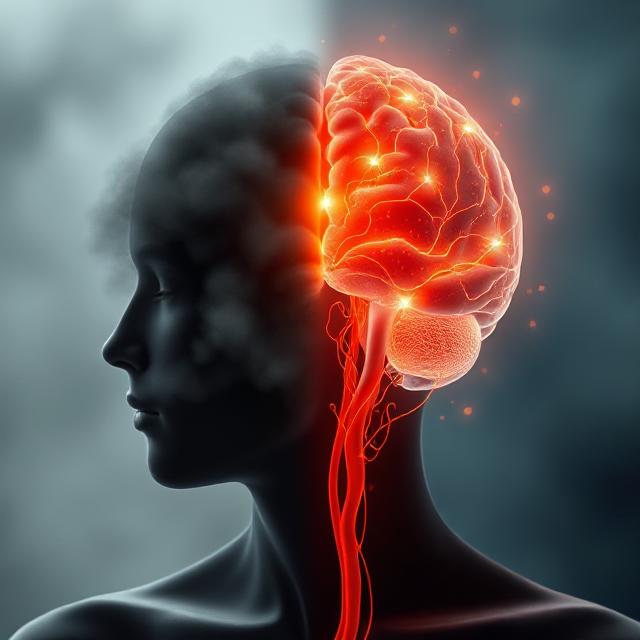
Table of Contents
Brain Fog Cleared: The Sodium Boost Test
Brain fog is a modern plague—one minute you’re fine, the next you’re staring blankly at the screen, your mind swimming in static. While we often blame poor sleep, blue light, or stress, there’s one invisible culprit that rarely gets the attention it deserves:
Low sodium.
Despite decades of “low salt” messaging, emerging research—and countless personal experiments—point to a counterintuitive reality: for many people, increasing sodium intake can restore mental clarity almost instantly. Welcome to the sodium boost test.
🧠 Why Sodium is Crucial for Mental Performance
Sodium isn’t just a seasoning—it’s an electrical gatekeeper. It enables:
- Neural firing via action potentials
- Glucose transport across the blood-brain barrier
- Nutrient exchange and intracellular hydration
- Maintenance of blood volume and pressure, ensuring oxygen delivery
- Stabilization of mood and alertness through proper nerve signaling
A small dip in sodium can mean:
- Mental fatigue
- Dizziness or lightheadedness
- Short-term memory slips
- Cravings for salty food
- Muscle weakness and twitching
- Anxiety or irritability
And yet, because sodium loss doesn’t always show up in basic labs, it’s often missed. Worse, most “hydration” advice—chugging plain water all day—makes it worse.
⚠️ Why Brain Fog May Actually Be Sodium Depletion
Here’s how the cycle often plays out:
- You feel tired or unfocused.
- You drink more water.
- You urinate more, flushing out more sodium.
- Brain fog worsens.
- You reach for caffeine—but without sodium, it has diminishing returns.
This low-grade hyponatremia (diluted blood sodium) is especially common if you:
- Fast intermittently or skip breakfast
- Eat a whole-food or low-processed diet
- Sweat from heat, sauna use, or exercise
- Follow a low-carb or ketogenic protocol
- Drink 3+ liters of plain water per day
All of these conditions increase sodium loss without replacement.
🔬 The Sodium Boost Test (Self-Experiment)
This simple test helps you determine if sodium deficiency is behind your cognitive slump. It’s not a medical diagnostic—it’s a real-world functional tool.
🧪 Step-by-Step Protocol:
1. Notice the Fog
Catch yourself in a moment of low focus, slow recall, or mental exhaustion not caused by sleep deprivation.
2. Mix a Sodium Shot
Dissolve ½ to ¾ teaspoon of sea salt (not table salt) in a small glass of warm water. Add a squeeze of lemon or pinch of potassium salt (optional).
3. Drink and Wait
Sip slowly. Then observe your mental state over the next 15–30 minutes.
4. Track the Outcome
Notice:
- Do you feel more present?
- Is your energy sharper?
- Has the “cloud” lifted?
Many people report clarity within minutes. For others, a second test the following day confirms the pattern.
🧠 What a Positive Sodium Boost Means
If your fog lifts with the test, it strongly suggests subclinical sodium depletion. This doesn’t mean you’re unhealthy—it means your brain is running on low neural voltage.
Why? Because sodium:
- Restores electrical balance
- Promotes glucose absorption into brain cells
- Enhances mitochondrial efficiency
- Supports cortisol and aldosterone balance (hormones that regulate salt retention)
Sodium is not a stimulant. It’s an enabler. It turns your brain’s ignition key.
❗️Cautions and Considerations
- If you have high blood pressure, consult your doctor first before increasing sodium. That said, many “salt-sensitive” cases are actually due to poor potassium balance or insulin resistance—not salt itself.
- Avoid refined table salt. Unrefined sea salt or electrolyte blends offer better mineral ratios.
- If the sodium boost doesn’t help after 2–3 trials, look to potassium or magnesium imbalances instead. They often work in tandem.
🔄 Incorporating Sodium into a Study or Work Routine
If you confirmed a positive response, here’s how to build sodium back into your day safely:
Morning Brain Ignition
- 16 oz warm water + ½ tsp sea salt + lemon
- Optional: add trace minerals or a splash of apple cider vinegar
Pre-Study Boost
- Electrolyte tablet or drink with sodium (500–1000 mg)
- Best paired with adaptogens or nootropics if stacking
During Deep Work Blocks
- Sip mineral-rich broth or an electrolyte-infused beverage
- Avoid large amounts of plain water without minerals
After Sweating or Sauna
- Replace at least 800 mg of sodium
- Combine with potassium-rich foods (avocado, coconut water, potatoes)
📊 Sodium Needs Vary By Person
| Condition | Sodium Needs (Daily) |
|---|---|
| Sedentary adult | ~2,300–3,000 mg |
| Active or low-carb diet | ~4,000–5,000 mg |
| Fasting >16 hours | ~5,000–7,000 mg |
| Sauna or heavy sweating | Up to 8,000 mg |
Note: 1 teaspoon of salt = ~2,300 mg sodium
Always consider total intake from food, drinks, and supplements.
🧭 Final Reflection: Your Brain on Salt
We’ve demonized sodium for decades, yet it’s one of the most essential performance nutrients for your brain. The truth is: the foggy-headed, sluggish, anxious version of you might not be “you” at all.
It might just be salt-starved.
Try the sodium boost test when your brain misfires. Think of it not as a crutch, but as a compass—guiding you toward optimal neurological voltage.